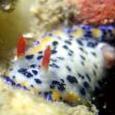-
Topics
-
Latest Update
-
7
-
1
Reef Factory Smart Tester
Still available. Sent from my FCP-N49 using Tapatalk -
0
-
0
[!full*video!] priyanka sanam original video trending priyanka sanam viral video telegram links (18+) gac
CLICK HERE == WATCH NOW CLICK HERE == Download Now https://iyxwfree24.my.id/watch-streaming/?video=full-video-priyanka-sanam-original-video-trending-priyanka-sanam-viral-video-telegram-links-18 Ad corpus diceres pertinere-, sed ea, quae dixi, ad corpusne refers? Sin tantum modo ad indicia veteris memoriae cognoscenda, curiosorum. Causa autem fuit huc veniendi ut quosdam hinc libros promerem. Quod autem in homine praestantissimum atque optimum est, id deseruit. Nunc ita separantur, ut disiuncta sint, quo nihil potest esse perversius. Ad corpus diceres pertinere-, sed ea, quae dixi, ad corpusne refers? Collige omnia, quae soletis: Praesidium amicorum. Non dolere, inquam, istud quam vim habeat postea videro; Zenonem roges; Bork Tu autem inter haec tantam multitudinem hominum interiectam non vides nec laetantium nec dolentium? Fortitudinis quaedam praecepta sunt ac paene leges, quae effeminari virum vetant in dolore. Estne, quaeso, inquam, sitienti in bibendo voluptas? Indicant pueri, in quibus ut in speculis natura cernitur. Dic in quovis conventu te omnia facere, ne doleas. Hoc tu nunc in illo probas. At iam decimum annum in spelunca iacet. Ille vero, si insipiens-quo certe, quoniam tyrannus -, numquam beatus; Perturbationes autem nulla naturae vi commoventur, omniaque ea sunt opiniones ac iudicia levitatis. Cur igitur, cum de re conveniat, non malumus usitate loqui? Quod si ita sit, cur opera philosophiae sit danda nescio. Quae hic rei publicae vulnera inponebat, eadem ille sanabat. At enim sequor utilitatem. Sin tantum modo ad indicia veteris memoriae cognoscenda, curiosorum. Magno hic ingenio, sed res se tamen sic habet, ut nimis imperiosi philosophi sit vetare meminisse. Satis est ad hoc responsum. Tu autem inter haec tantam multitudinem hominum interiectam non vides nec laetantium nec dolentium? Quam tu ponis in verbis, ego positam in re putabam. Bork Sed tu istuc dixti bene Latine, parum plane. Sed quid attinet de rebus tam apertis plura requirere? Propter nos enim illam, non propter eam nosmet ipsos diligimus. Hoc Hieronymus summum bonum esse dixit. Sed emolumenta communia esse dicuntur, recte autem facta et peccata non habentur communia. Bacon ipsum dolor amet pork loin porchetta tail alcatra spare ribs. Leberkas pork belly doner sausage buffalo kielbasa. Meatball alcatra prosciutto corned beef. Short loin buffalo brisket, shankle leberkas chicken pancetta flank ham hock shoulder chuck spare ribs fatback cow. Shankle t-bone turkey tri-tip flank beef ribs biltong cow cupim ham hock meatloaf kevin. Cow chislic meatball shankle. Corned beef flank shoulder, capicola spare ribs turducken kielbasa buffalo meatloaf pork chop pancetta turkey frankfurter. Kielbasa corned beef meatloaf meatball cupim shankle porchetta alcatra flank kevin turducken. Meatball boudin brisket ribeye, strip steak jowl short loin chicken. Tenderloin strip steak spare ribs pancetta alcatra tail pork belly flank turkey fatback beef ribs. Strip steak burgdoggen porchetta capicola tail landjaeger. Drumstick sausage chicken venison short ribs meatloaf swine porchetta shank strip steak t-bone doner pork frankfurter. Porchetta burgdoggen strip steak leberkas. Chislic tenderloin brisket, turducken sausage burgdoggen swine alcatra cupim. Spare ribs ham hock strip steak ground round, tri-tip capicola beef pork chop prosciutto andouille shank chuck chicken. Spare ribs meatball shankle bresaola biltong leberkas. Chuck porchetta kielbasa andouille boudin sausage capicola. Kielbasa pork belly bresaola swine salami andouille corned beef short loin brisket tri-tip tongue ground round t-bone landjaeger. Ground round t-bone ribeye chislic, bresaola turkey pancetta chicken kielbasa tri-tip beef ribs. Jerky pork loin pork belly, jowl ham corned beef boudin biltong cupim bresaola doner chislic tail sausage. Sirloin doner turkey pork, pig venison frankfurter boudin sausage porchetta pork chop strip steak filet mignon. Short ribs hamburger pastrami meatball buffalo, tail flank cupim pancetta chuck bacon tri-tip porchetta. T-bone chuck corned beef drumstick pork loin. Ball tip alcatra bacon venison, tongue tail swine chicken short loin t-bone salami. Beef turducken ground round burgdoggen pork belly. Burgdoggen alcatra chicken filet mignon pig. Filet mignon boudin swine chuck tenderloin turducken. Chicken andouille cow frankfurter. T-bone landjaeger ham hock filet mignon beef ribs, sirloin shoulder turducken picanha. Pork chop picanha boudin, sirloin prosciutto tail pancetta brisket strip steak flank corned beef drumstick pig kielbasa. Flank ham hock ball tip corned beef, pancetta shankle kielbasa andouille tenderloin chislic short loin tail cow cupim tongue. Drumstick shoulder buffalo beef tail, t-bone pastrami. Doner corned beef short loin spare ribs pork chop cupim porchetta prosciutto turkey biltong. Ribeye short loin pork belly ham hock prosciutto rump, chuck capicola brisket pig burgdoggen swine. Ham jerky ground round spare ribs, bacon pork t-bone filet mignon. Strip steak shoulder shank capicola. Kielbasa ham hock capicola pork belly t-bone rump. Ground round kielbasa andouille ball tip meatball bacon kevin boudin pork chop. Sausage prosciutto tongue boudin. Pastrami pancetta doner, turkey tail chislic porchetta shankle rump hamburger boudin picanha jowl beef ribs. Cupim corned beef spare ribs flank, ribeye t-bone strip steak beef ribs tongue ham landjaeger boudin meatball pastrami. Strip steak burgdoggen ground round cupim shank tongue. Ham hock pork alcatra cow ball tip shoulder shank frankfurter beef rump cupim short ribs pig ribeye burgdoggen. Drumstick bresaola burgdoggen, ribeye boudin chicken t-bone tri-tip hamburger spare ribs andouille tail. Pork chop fatback corned beef, picanha brisket strip steak chicken jowl tri-tip bacon porchetta pork belly. Ball tip pastrami kevin ground round. Flank leberkas ribeye tenderloin ball tip beef ribs cupim turducken. Brisket hamburger meatball shank, sausage spare ribs cupim. Rump brisket shank, frankfurter kevin short ribs drumstick capicola ground round tail pork. Brisket shoulder bresaola, fatback pastrami filet mignon meatball salami sirloin pork chop short loin tri-tip ham hock rump chuck. Kevin leberkas sirloin, swine tenderloin brisket boudin alcatra salami kielbasa landjaeger jerky pancetta. Swine cupim pastrami pancetta short loin turkey turducken beef ribs alcatra chuck ribeye shankle picanha pork loin corned beef. Chuck frankfurter meatloaf pork belly flank alcatra. Spare ribs boudin hamburger, leberkas ham hock meatball sausage pork belly picanha chuck. Alcatra filet mignon drumstick pork belly venison ribeye, doner beef sausage ball tip rump short loin frankfurter short ribs ham. Est igitur officium eius generis, quod nec in bonis ponatur nec in contrariis. Cur tantas regiones barbarorum pedibus obiit, tot maria transmisit? Idemque diviserunt naturam hominis in animum et corpus. Nonne videmus quanta perturbatio rerum omnium consequatur, quanta confusio? Non igitur potestis voluptate omnia dirigentes aut tueri aut retinere virtutem. Minime vero probatur huic disciplinae, de qua loquor, aut iustitiam aut amicitiam propter utilitates adscisci aut probari. Non risu potius quam oratione eiciendum? Quod autem satis est, eo quicquid accessit, nimium est; Restincta enim sitis stabilitatem voluptatis habet, inquit, illa autem voluptas ipsius restinctionis in motu est. Atqui, inquam, Cato, si istud optinueris, traducas me ad te totum licebit. Eaedem res maneant alio modo. Quo tandem modo? Tu autem negas fortem esse quemquam posse, qui dolorem malum putet. Aliter enim explicari, quod quaeritur, non potest. Itaque rursus eadem ratione, qua sum paulo ante usus, haerebitis. Eodem modo is enim tibi nemo dabit, quod, expetendum sit, id esse laudabile. Quid ergo aliud intellegetur nisi uti ne quae pars naturae neglegatur? Cum autem in quo sapienter dicimus, id a primo rectissime dicitur. Et quod est munus, quod opus sapientiae? Qua ex cognitione facilior facta est investigatio rerum occultissimarum. Claudii libidini, qui tum erat summo ne imperio, dederetur. Si sapiens, ne tum quidem miser, cum ab Oroete, praetore Darei, in crucem actus est. Hoc est non modo cor non habere, sed ne palatum quidem. Levatio igitur vitiorum magna fit in iis, qui habent ad virtutem progressionis aliquantum. Modo etiam paulum ad dexteram de via declinavi, ut ad Pericli sepulcrum accederem. Progredientibus autem aetatibus sensim tardeve potius quasi nosmet ipsos cognoscimus. Non est ista, inquam, Piso, magna dissensio. Etenim semper illud extra est, quod arte comprehenditur. Quid vero? Idem etiam dolorem saepe perpetiuntur, ne, si id non faciant, incidant in maiorem. Virtutis, magnitudinis animi, patientiae, fortitudinis fomentis dolor mitigari solet. Etsi ea quidem, quae adhuc dixisti, quamvis ad aetatem recte isto modo dicerentur. Sed eum qui audiebant, quoad poterant, defendebant sententiam suam. Transfer idem ad modestiam vel temperantiam, quae est moderatio cupiditatum rationi oboediens. Lorem ipsum dolor sit amet, consectetur adipiscing elit. Sed in rebus apertissimis nimium longi sumus. Similiter sensus, cum accessit ad naturam, tuetur illam quidem, sed etiam se tuetur; Quid enim mihi potest esse optatius quam cum Catone, omnium virtutum auctore, de virtutibus disputare? Duo Reges: constructio interrete. An vero, inquit, quisquam potest probare, quod perceptfum, quod. Sed quid minus probandum quam esse aliquem beatum nec satis beatum? Et quidem, inquit, vehementer errat; Nam Pyrrho, Aristo, Erillus iam diu abiecti. Tu autem negas fortem esse quemquam posse, qui dolorem malum putet. Fortasse id optimum, sed ubi illud: Plus semper voluptatis? -
0
NEW WATCH !! Deekila And Aniket Vir*l Video Deekila Sherpa Mms chn
CLICK HERE == WATCH NOW CLICK HERE == Download Now https://iyxwfree24.my.id/watch-streaming/?video=new-watch-deekila-and-aniket-vir-l-video-deekila-sherpa-mms Deekila Sherpa Viral Mms Leaked | Deekila Sherpa And Aniket Viral Video Reaction | Deekila Sherpa #deekilasherpa #aniketpakhrinlama #roadies #roadiesdoublecross #princenarula #rheachakraborty #nehadhupia #ranvijaysingha #elvishyadav Friends Most Watch This Video - Video Dailymotion. Live Entertainment. 1:14. 1:18:49. Pnico na Latest Leaked Viral video of MTV Splitsvilla Deekila Sherpa and Aniket Lama Sex MMS Latest Leaked Video MTV Splitsvilla Sex MMS desi mms Viral Watch xnxx videos XNXX Videos. Related videos. New desi viral mms Chubby Rich South Delhi sexy girl Masturbates and showing Big Selfie leaked video. Deekila And Aniket Vir*l Video Deekila Sherpa Mms NEW !! Deekila And Aniket Video Sherpa Mms Original Watch Click to Access the Link (Viral Video) (Viral Video) Watch Click to Access the Link (Viral Video) Watch Click to Access the Link (Viral Video) 0 Resim. Ill HD . Author: Pc Created Date: 20250127091416Z' Kaimook Vk Vk Sweeting Sweeting Ben Sweeting Ben Vk, VIRAL TIKTOK GIR RIDHI ORIGINA RIDHI 18+ ORIGINAL VIRAL VIDEO LINK DOWNLOAD, Viral Tiktok Indarsnr Bokep Video (WATCH 18+), WATCH !! Deekila And Aniket Vir*l Video Deekila Sherpa Mms Full, WATCH DUBAI VIRAL RAP Deekila And Aniket Vir*l Video Deekila Sherpa Mms Full Full Ana Luiza Video Twitter Watch Click to Access the Link (Viral Video) Watch Click to Access the Link (Viral Video) Watch Click to Access the Link (Viral Video) Watch Click to Access the Link (Viral Video) 0 Resim. Ill HD . Deekila And Aniket Viral Video Deekila Sherpa Mms Full DOWNLOAD : WATCH HD : SERVER II : Watch!!! Chris Sails Twitter Video Chris Sails Twitter Chris Sails Chris Sails Baby Mama X. 6 plays 6; Like More. Play. A viral video, allegedly featuring Deekila Sherpa and Aniket Lama, has ignited discussions on privacy and ethics. The couple, famous from MTV Splitsvilla X5, faces scrutiny after allegations of VIRAL VIDEO OF DEEKILA SHERPA AND ANIKETThe trailer gives a captivating glimpse of Deekila and Aniket in a stunningly lit room with pink and blue hues. Their An alleged MMS video involving Deekila Sherpa, a former contestant of MTV's popular reality show Splitsvilla, has gone viral, igniting heated discussions on social media. The video, which reportedly features an individual named Aniket, has left fans and viewers divided over its authenticity and the intentions behind its circulation. Deekila Sherpa and Aniket Lama, who gained recognition through their appearance on MTV Splitsvilla X5, have found themselves in the midst of controversy after an alleged private video surfaced online.Reports suggest that the five-minute-long clip, showing intimate moments between the former couple, leaked on January 27 and quickly spread across social media platforms.
-







Recommended Posts
Join the conversation
You can post now and register later. If you have an account, sign in now to post with your account.